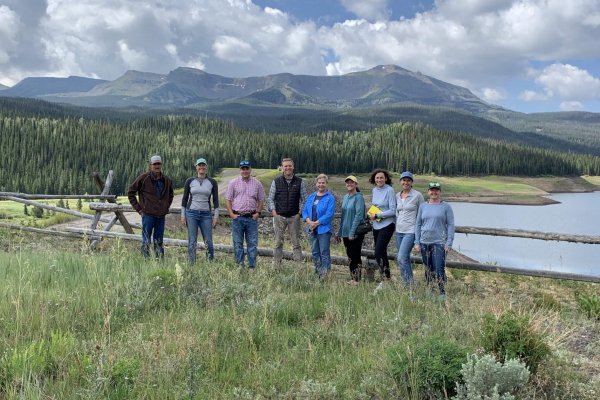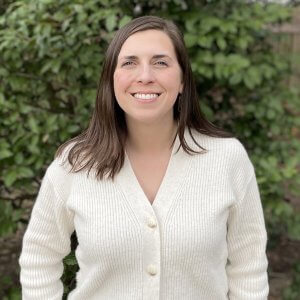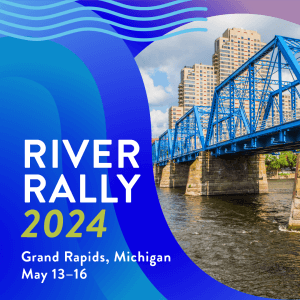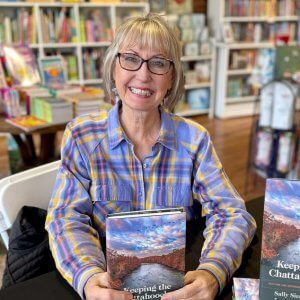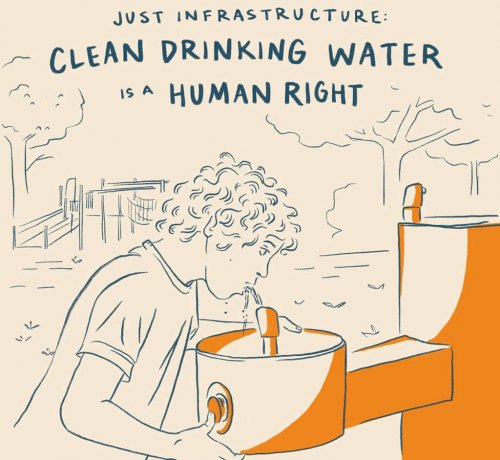River Voices: March 2024

Welcome to the March 2024 edition of River Voices. This month we’re exploring what small organizations need to maximize their impact. Learn about capacity needs and equity considerations for organizations that are leading on watershed restoration in Colorado. Plus, River Rally 2024 registration, including 12 amazing local field trips, is open!
An organization’s success requires a strong foundation: a clear mission, supportive board, skilled staff, and financial stability. But how can grant makers and large conservation nonprofits better support small organizations to build this capacity?
Rural, agricultural organizations and watershed groups throughout Colorado are being called upon to lead multi-benefit projects that support multiple water uses, but gaps in capacity need to be addressed to meet these lofty goals. This month, we dive into lessons learned from River Network’s white paper on scaling up local capacity. Here, we explore lessons learned about capacity needs and equity considerations for organizations that are leading on watershed restoration in Colorado.
As a steward of the land and water, and as a rancher, it’s part of my duty to care and actually take action. That’s part of the job description.”
– Ben Wolcott, farmer and rancher working on multi-benefit projects in Colorado
“With my previous roles and now at River Network serving as a funder, it’s so energizing to get a sense of the variety and impactful conservation work happening on the ground. There are so many dedicated individuals and organizations making a difference in their communities and it’s motivating to play a small role in ensuring that work can be done.”
Join us in welcoming Stephanie Heidbreder, who is leading our work as a National Pass-Through Partner in the USFS/USDA’s Urban and Community Forestry Program.
This year, local leaders and organizations will lead 12 incredible field trips at River Rally! From planting native plants in curb-cut rain gardens to hiking through historic neighborhoods and experiencing the freshwater dunes of Lake Michigan, there’s something here for everyone.
River Rally provides a platform for attendees to exchange knowledge, build skills, and network with peers committed to protecting and restoring our waterways. Explore the evolving program and register before we reach our registration cap!
“With the riverkeeper movement, there’s one person who’s either the river keeper, bay keeper, sound keeper, water keeper, and so forth … and people wonder about that person. Where did they come from? Why are they doing this? And I know, personally, I get drawn into an issue when I hear somebody’s story.”
Read or listen to this month’s interview with Sally Bethea, a long time leader in the water community, who discusses the importance of personal storytelling and her experience as one of the first women in America to become a riverkeeper.
Across the network community-based groups are organizing to address pollution and build resilience to climate change. Now, through the Inflation Reduction Act (IRA) the EPA has launched the groundbreaking Community Change Grants Program investing an unprecedented $2 billion in environmental and climate justice activities to benefit “disadvantaged communities.” It will fund community driven climate resilience solutions, invest in cross sectoral collaborations with partners working with and for disadvantaged communities, and to fund and empower disadvantaged communities.
River Network is working to compile and share information and resources on this massive opportunity and will be hosting a learning session March 26 at 11a PT/2pm ET with the Environmental Protection Network (EPN).
Explore and amplify the Just Infrastructure storytelling campaign, a collaborative effort led by the Water Hub team and partners nationwide. This initiative harnesses federal funding from key legislation to drive transformative projects in water infrastructure. From wetland restoration to lead pipe replacement, these endeavors prioritize equitable access to clean water and resilience against climate challenges.
The campaign offers a toolkit of resources—artwork, social media content, fact sheets—to empower advocates in championing just implementation. Join us in celebrating community-led initiatives that are shaping water justice and resilience in regions like the West, Gulf South, and Great Lakes.
Putting Citizen Science Data to Use
TODAY, March 13, at 1p PT / 4p ET
This edition of The Current webinar series from North Central Region Water Network will feature two citizen science programs – the Community Collaborative Rain, Hail and Snow Network and Lakes of Missouri Volunteer Program – and explore how the data collected by volunteers is being used to inform decision-makers and influence future research.
Writing 101 Workshop
March 26 at 8a PT / 11a ET
Join CDRW for a Writing 101 Workshop with Michael Atkins from New Jersey Future! At the end of the day, everything boils down to communications methods, strategies and clarity. A strong approach with your team’s writing will clarify messaging across blogs, newsletters, social media, press outreach, op-eds, and more.
Community Change Grants Info Session
March 26, 11a PT / 2p ET
In this info session, presenters from the Environmental Protection Network will provide guidance for applying to the EPA’s Community Change Grants Program (CCGP). You’ll have a chance to connect with other session participants in small groups to share your project ideas and identify specific areas where you need support with the application process.
📣 WE’RE HIRING! River Network seeks an experienced and proactive Philanthropy Director capable of aligning River Network’s strategic plan and program goals with the priorities and interests of institutional funding partners. Applications are due by March 22. Check out the full posting on our careers page.
Toward a Strong and Equitable Water Workforce
The water utility sector has a transformational, equity-building opportunity: the composition and capability of its future workforce. The US Water Alliance’s new report highlights strategies and initiatives to drive inclusivity, representation, and resilience in the water sector—and to scale those best practices across the country.
Current Federal Funding Opportunities
Visit River Network’s website for a regularly updated list of current funding opportunities. While we know that implementing critical water projects and policies is ultimately local, federal funding dollars can help you carry out important work. That’s why we’re committed to supporting our network to understand, influence, and access federal funding.
This March, we celebrate the courageous women, transgender women, and nonbinary folks who are bringing awareness to important issues and advocating for a more just future. Share your reading recommendations in River Network’s online community.
- 🎧 The Mothers of Invention podcast explores climate change as a man-made problem with a feminist solution.
- 📖 Keeping the Chattahoochee: Long-time network member and this month’s Meet Your Network interviewee, Sally Bethea, shares stories from a career advocating for the Chattahoochee River and reflects on her experience navigating what were once male-dominated spaces.
- 📧 If you’ve read All We Can Save: Truth, Courage, and Solutions for the Climate Crisis by Ayana Elizabeth Johnson and Katharine Wilkinson, we recommend the newsletter, which contains a short monthly message designed to nourish, sustain, and fortify everyone who is working towards a life-giving future.


